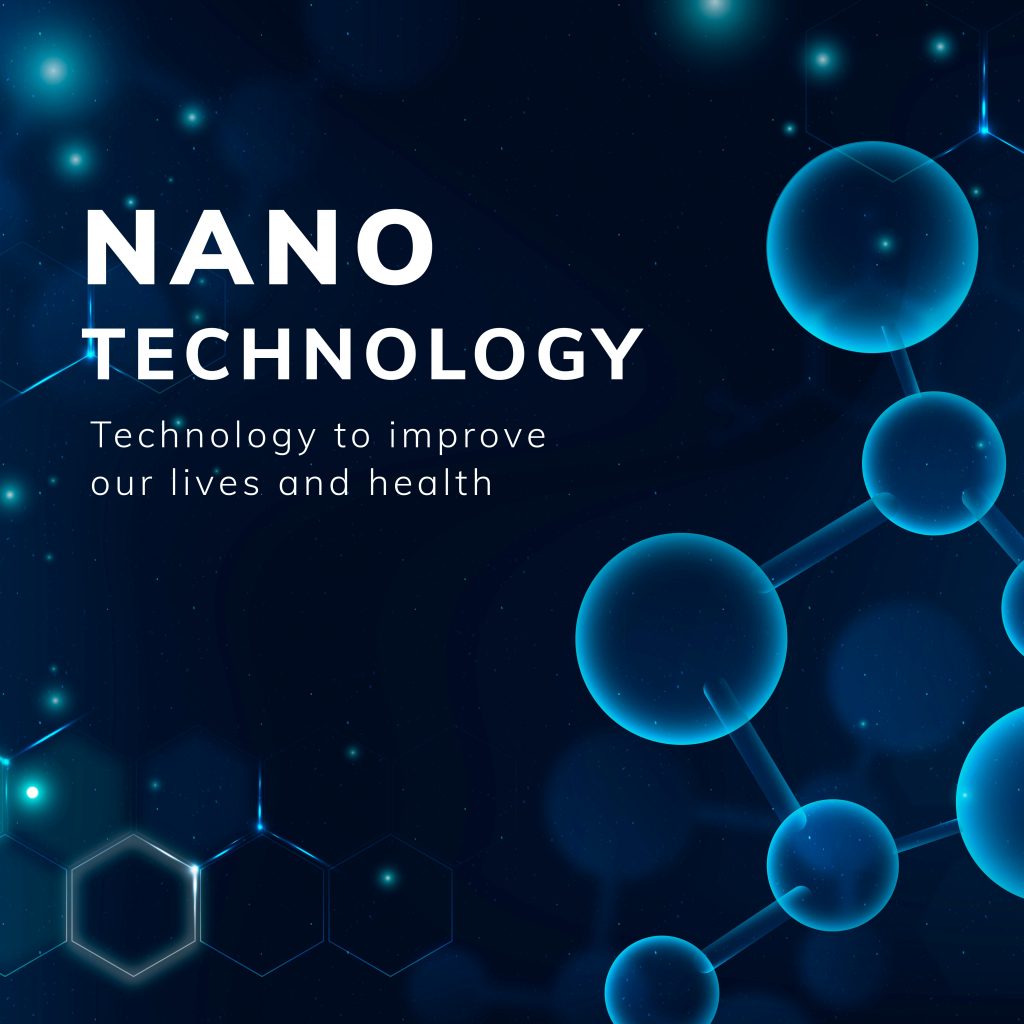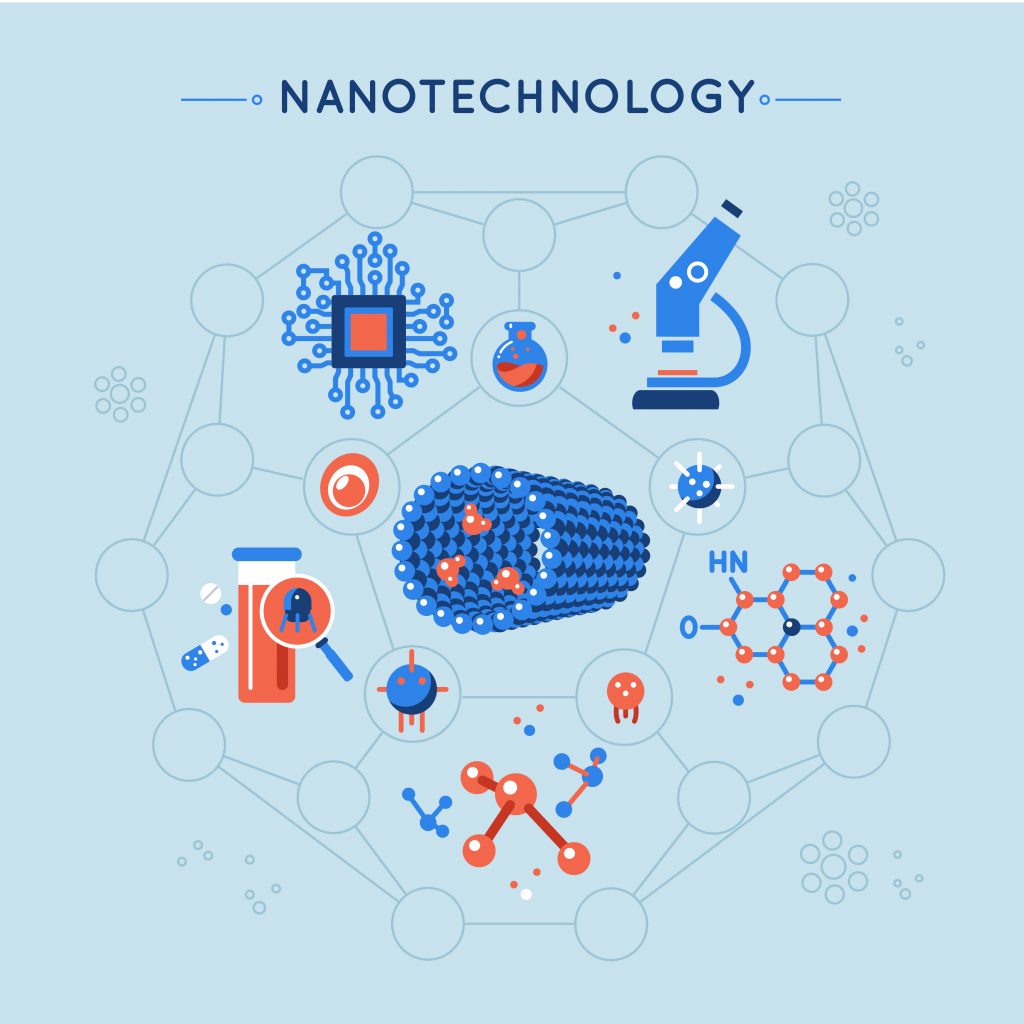The Future Of Nanotech: Exploring the Possibilities And Impacts On Society
Before making any decisions about the future of nanotechnology, it is critical to comprehend its history and perspective effects on society. Learn more about nanotechnology in the world.
What is Nano Technology?
Nanotechnology, often known as nanoscale objects or molecules, is a branch of science. These particles can interact with one another in a very complicated manner despite being so small that they can be seen with the naked eye.
In the area of healthcare, nanotechnology has some of the most promising applications. Drugs made from nanoparticles have a number of advantages over conventional medications, including greater efficiency, fewer adverse effects, and a quicker commencement of the action. They could revolutionize the way that diseases like cancer and heart disease are treated because they are considerably less likely to harm cells or organs.

There are several possible advantages of nanotechnology:
- Developing new medical procedures and equipment that are far more efficient and durable, can aid in the improvement of our healthcare system.
- It can also aid in the development of technologies and energy sources that are more efficient.
- It can improve our transportation networks by making it possible to construct smaller vehicles that are more fuel efficient.
- And last, it can have a significant impact on the advancement of cutting-edge technology like robots and 3D printing.
Who coined the term Nano Technology?
Although Dr. Richard Feynman first used the term “nanotechnology” in 1956, scientists didn’t fully grasp its potential until the early 1990s.
A billionth of a meter is equal to 10-9 meters, hence nanotechnology is the manipulation of matter at this scale. This means that products and devices made with nanotechnology can be made much smaller and lighter than those made with conventional technologies.
Why does nanotechnology matter?
Everything from treating cancer to cleaning up oil spills can benefit from nanotechnology.
- It can increase a product’s effectiveness and durability, resulting in cost savings.
- Lowering the demand for conventional materials and processes can lessen the environmental pollution.
- It has the potential to offer fresh approaches to engaging with the environment, from energy harvesting to mending the harm caused by weather occurrences.
- It has the power to generate new markets and enterprises that were never possible previously.
Another area where nanotechnology is making huge waves is energy production. Researchers have created solar cells that are based on nanoparticles instead of traditional silicon cells. These solar cells are much more efficient and durable, meaning they can withstand harsher environments and last longer than traditional solar panels.
Nanotechnology’s impact on society
Nanotechnology has the potential to benefit humanity in incredible ways as it advances. For instance, it might enable us to develop more environmentally friendly, sustainable materials. It might also enable us to develop treatments and medications that are more potent than anything we have ever seen.
However, there are also some possible unfavorable effects of nanotechnology on civilization. For example, it could lead to increasing cyber-security threats due to the fact that tiny machines can readily penetrate our networks and corrupt or delete sensitive data. Additionally, as nanotechnology begins to be applied in agricultural and food production, it could cause significant disruptions in our food supply.
What does Nanotechnology do?
Nanotechnology is used to develop novel and cutting-edge goods, methods, and tools that have the potential to revolutionize a wide range of spheres of our lives. The following are some of the most typical uses for nanotechnology:
- Drug delivery mechanisms: Nanoparticle medications are far more potent than conventional drugs because they can be directed selectively to particular tissues or organs. Since they can move through the body more easily, they also have a lower risk of side effects.
- Environmental cleanup: By dissolving harmful molecules into more manageable components, nanoparticles can be used to clean up toxic environments.
- Food production: Crops can be supplemented with nanoparticles to help them grow bigger and faster with improved nutritional value. Food waste and malnutrition could be significantly reduced as a result of this worldwide.

Conclusion
Nanotechnology’s future is both incredibly exciting and intimidating. On the one hand, it has the potential to improve many aspects of our lives, including our health, security, and environment. On the other hand, there are concerns about how it will be used and whether it will pose any risks to society as a whole.
In terms of the impacts on society, there are a number of ways in which nanotech could change things. It could help us create new medicines and vaccines that are much more effective than those currently available. It could also help us develop new materials that are stronger, lighter, and cheaper than anything currently available.



Leave feedback about this